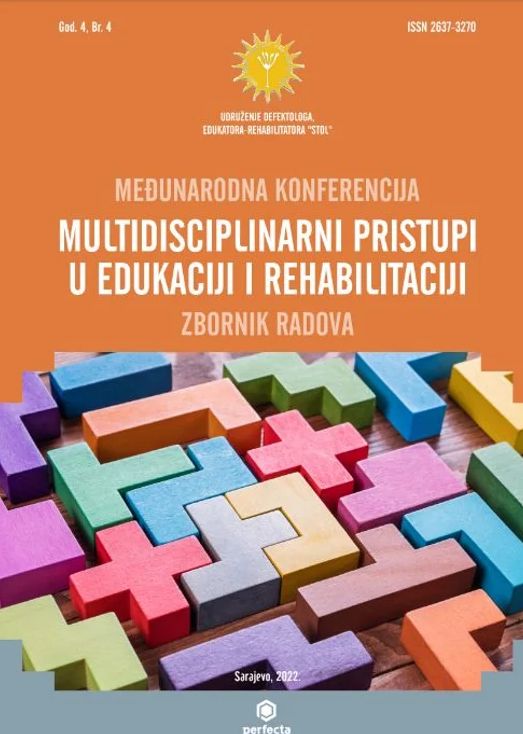DOSTUPNOST IZBORA ODRASLIM OSOBAMA SA LAKOM INTELEKTUALNOM OMETENOŠĆU
AVAILABILITY OF CHOICE FOR ADULTS WITH MILD INTELLECTUAL DISABILITY
Author(s): Marija CvijetićSubject(s): Social Sciences, Vocational Education, Inclusive Education / Inclusion
Published by: Udruženje defektologa, edukatora-rehabilitatora (STOL)
Keywords: availability of choice; mild intellectual disability; type of housing; age;
Summary/Abstract: Studies indicate that adults with mild intellectual disability generally have a limited range of choices about the different domains of life that people of the typical population decide for themselves. Low availability of choices in this population is less pronounced in everyday activities, and is more pronounced in relation to more complex life issues. The aim of the research was to determine the level of availability of choices for people with mild intellectual disability in different areas of life, as well as to examine the existence of differences in the availability of choices in relation to gender, age and housing type. The sample consisted of 36 adult respondents with mild intellectual disability, both genders, aged 22 to 49 years. The Choice Questionnaire (Stancliffe & Parmenter, 1999) was used for data collection, which was applied in the form of interviews with respondents. The results showed that respondents have the most opportunities to make choices in the field of social activities, while they have the least choice in regarding money management. Statistically significant differences in the availability of choices were found in relation to the type of housing (t = -3.682; p = 0.001), so that respondents who live with support have more opportunities to choose the desired option in different domains of life, compared to respondents who live in family home. A statistically significant correlation was found between the availability of choices to respondents and their age (r = 0.371; p = 0.026), in a way that with the age of respondents increases the number of activities in which they get the opportunity to choose what they want. Statistically significant differences in the availability of opportunities for making choices in everyday life between male and female respondents were not found (t = -0.417; p = 0.679). The obtained results give practical implications related to the need to increase the availability of choices regarding daily activities and more complex life issues for people with mild intellectual disability, in accordance with their abilities, with special emphasis on people living in family homes and younger adults.
Journal: Multidisciplinarni Pristupi u Edukaciji i Rehabilitaciji
- Issue Year: 4/2022
- Issue No: 4
- Page Range: 59-69
- Page Count: 11
- Language: Bosnian, Croatian, Serbian

